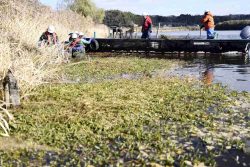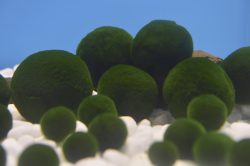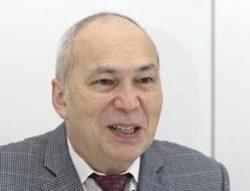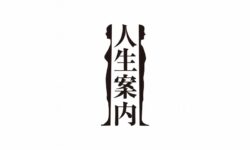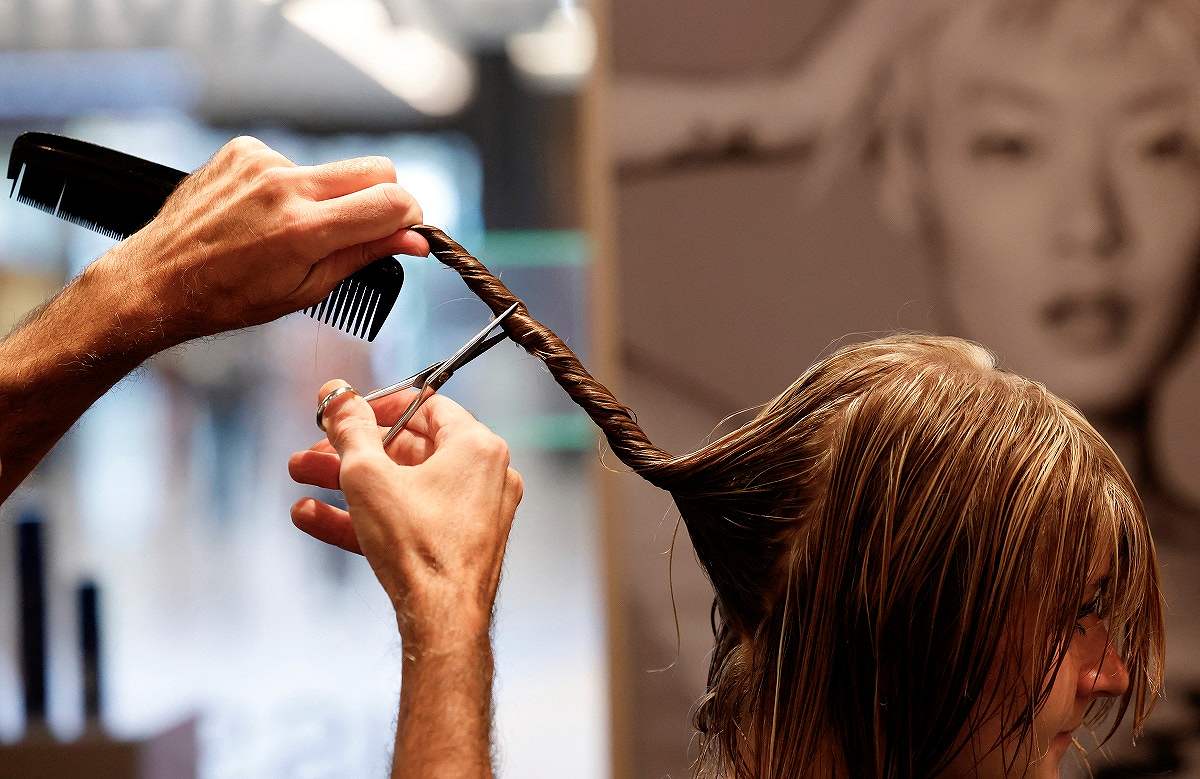
A Belgian hairdresser at hair salon L’Atelier Chedly Boussigua cuts a customer’s hair, which will be collected by the association Dung Dung to transform the hair into tiles used to absorb polluting chemical substances in water, in Brussels on Nov. 4, 2022.
13:44 JST, January 26, 2023
BRUSSELS (Reuters) — Coiffeurs across Belgium are sweeping up and bagging hair clipped from their customers, and then handing it over to an NGO that recycles it to protect the environment.
The Hair Recycle project feeds locks and tresses into a machine that turns them into matted squares that can be used to absorb oil and other hydrocarbons polluting the environment, or made into bio-composite bags.
Project cofounder Patrick Janssen, explained that a kilogram of hair can absorb 7-8 liters of oil and hydrocarbons, said the mats can be placed in drains to soak up pollution in water before it reaches a river.

Left: Patrick Janssen, cofounder of Dung Dung, and Thomas Petry make a tile from recycled human hair that is used to absorb polluting chemical substances in water, in Waremme, Belgium, on Dec. 8, 2022. Right: Janssen shows a tile.
“Our products are all the more ethical as they are manufactured locally … they are not imported from the other side of the planet,” he told Reuters. “They are made here to deal with local problems.”
The project said on its website that hair has powerful properties: one strand can support up to 10 million times its own weight, and as well as absorbing fat and hydrocarbons, it is water-soluble and highly elastic due to its keratin fibres.
Isabelle Voulkidis, manager of the Helyode salon in Brussels, is one of dozens of hairdressers across the country that pay a small fee to the project to collect their hair cuttings.
“What motivates me, personally, is that I find it a shame hair is nowadays just thrown in the bin, when I know that so much could be done with it,” she said, as she combed and clipped one of her customer’s hair.
Top Articles in Science & Nature
-

Univ. in Japan, Tokyo-Based Startup to Develop Satellite for Disaster Prevention Measures, Bears
-

Japan Institute to Use Domestic Commercial Optical Lattice Clock to Set Japan Standard Time
-

Space Mission Demonstrates Importance of International Cooperation, Astronaut Kimiya Yui Says
-

Tsunami Can Travel Vast Distances Before Striking, Warn Japanese Researchers
-

Japan to Face Shortfall of 3.39 Million Workers in AI, Robotics in 2040; Clerical Workers Seen to Be in Surplus
JN ACCESS RANKING
-

Univ. in Japan, Tokyo-Based Startup to Develop Satellite for Disaster Prevention Measures, Bears
-

JAL, ANA Cancel Flights During 3-day Holiday Weekend due to Blizzard
-

China Confirmed to Be Operating Drilling Vessel Near Japan-China Median Line
-

China Eyes Rare Earth Foothold in Malaysia to Maintain Dominance, Counter Japan, U.S.
-

M6.2 Earthquake Hits Japan’s Tottori, Shimane Prefectures; No Tsunami Threat (Update 4)


